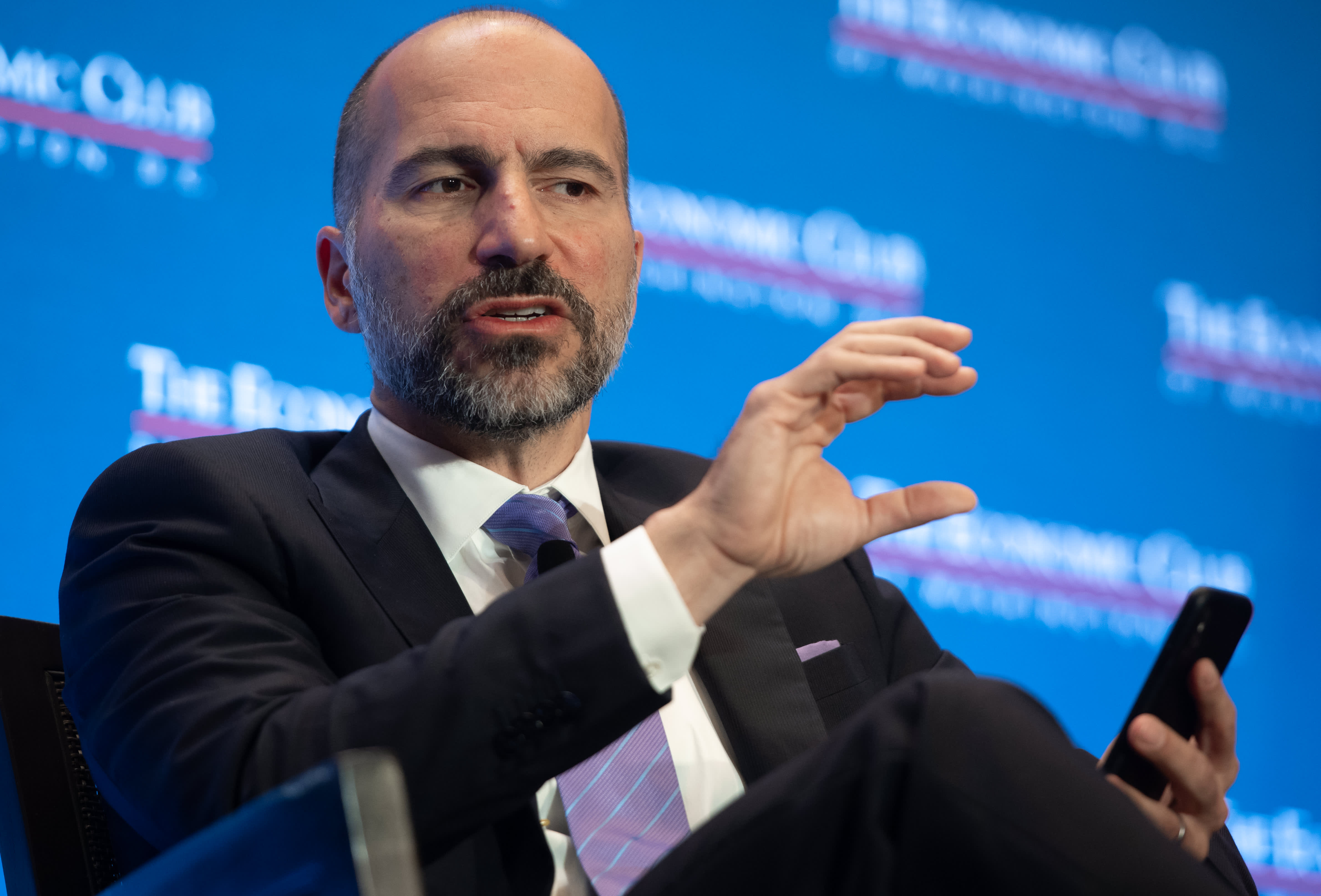
Uber CEO Dara Khosrowshahi told CNBC on Thursday that the company discussed it, but “quickly rejected” the idea of buying bitcoin with corporate cash such as Telsa.
However, Khosrowshahi said Uber would consider accepting cryptocurrencies as payment.
The comments come after Tesla announced earlier this week that it was purchasing $ 1.5 billion worth of bitcoin with some cash on its balance sheet and plans to accept the digital coin as payment for its products. Tesla’s actions caught the attention of Wall Street and some questioned whether the electric vehicle manufacturer’s decision would be a tipping point for further cryptocurrency adoption.
In an interview on “Squawk Box”, Khosrowshahi was asked if Uber had considered actions similar to Tesla. “It’s a conversation that happened that was quickly turned down,” he said. “We’re going to keep our cash safe. We don’t speculate,” he stressed. “The advantage of our business is in the business we have built, not the investments we invest in.”
As of December 31, Uber reported that it had $ 5.65 billion in cash and cash equivalents, along with $ 1.18 billion in short-term investments.
Khosrowshahi, who took over as Uber’s CEO in 2017, left open the possibility that the rides and food delivery provider would accept cryptocurrencies as payment.
“Just as we accept all types of local currencies, we are going to view cryptocurrency and / or bitcoin in terms of currency to make transactions,” he said. “That’s good for business. That’s good for our riders and our eaters. We’ll definitely look at that and if there’s a benefit, if there’s a need for it, we’ll do it. We’re just not going to do it. part of a promotion. “
On Wednesday, Mastercard announced its intentions to open up its network to some cryptocurrencies, a move that the credit card giant says will enable consumers and merchants to “transact in an entirely new form of payment.” Mastercard had already had customers make some transactions with cryptocurrencies, but these took place outside the company’s formal network.
The latest financial company to put its weight behind crypto is BNY Mellon, who said Thursday that it will launch a digital assets division later this year. Shares of America’s oldest bank rose on Thursday.
Proponents of companies buying bitcoin for their business cash argue that despite its daily volatility, the digital currency has and will continue to appreciate in value over the long term. For that reason, supporters like Michael Saylor, CEO of MicroStrategy, believe it is a more productive investment than keeping hordes of cash on the balance sheet.
Some skeptics are concerned about the volatility risks of bitcoin, which has seen a massive flight in recent months to trade above $ 48,000 a coin on Thursday morning. A year ago, bitcoin was trading below $ 11,000. While bitcoin has seen greater institutional adoption of late, some still believe there is still too much uncertainty about the future.
Like Uber, PepsiCo CFO Hugh Johnston told CNBC on Thursday that the beverage giant was “having the talk” about buying bitcoin with its cash. “The conclusion we came quite quickly was that bitcoin is too speculative for the way we manage our cash portfolio,” Johnston said earlier in “Squawk Box,” shortly after the company reported better-than-expected revenues and earnings. PepsiCo reported fourth-quarter profit of $ 1.47 per share on revenue of $ 22.46 billion. Shares fell on Thursday.
As for Uber, stocks fell on Thursday due to the company’s mixed fourth-quarter results. The stock rose 6% during Wednesday’s session on its way to the post-bell report. Uber said it lost 54 cents a share in the fourth quarter, a bit more limited than analyst expectations for a loss of 56 cents. Sales of $ 3.17 billion were below the $ 3.58 billion Wall Street was looking for. The company’s total loss for the quarter was $ 968 million, an improvement over the loss of $ 1.1 billion in the same period last year.
The offerings from Uber’s two largest companies – ride call and food delivery – have suffered a different fate during the coronavirus pandemic. The ride-hailing segment has suffered as people stayed at home and traveled less. Conversely, Uber Eats has seen its use rise as people ordered delivery rather than eating in restaurants.